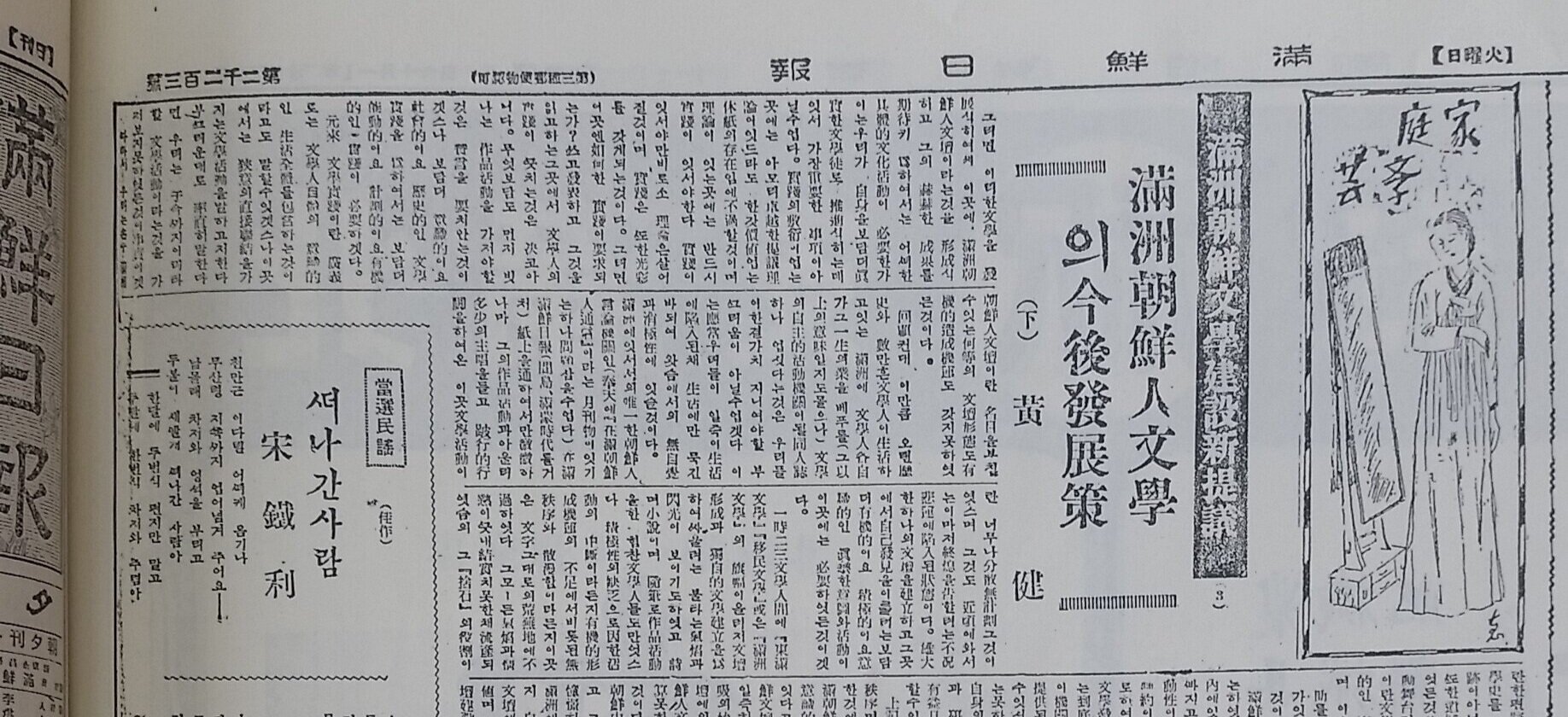Manchuria Literarian
“A literarian is someone who loves literature so much that he or she wants to share it with as many people as possible...” (A Way with Words)
Hello and welcome! 大家好, 안녕하세요! I am a literary scholar in Asian studies and I created this site is to share the history, literature, and culture of northeast China. My academic research focuses on the early twentieth century, in particular the period from 1931-1945, when the Japanese empire created a state called Manchukuo. In the blog, I share conference talks and short articles from my PhD research on the interactions between Chinese and Korean writers in Manchukuo. My personal interests, however, extend beyond the Manchukuo period and into the twenty-first century. Around the site you'll also find current news and information about "northeast literature" (东北文学), including works in Korean by Korean-Chinese (조선족) writers. Finally, I also share some of the creative projects and translations I've been working on, as well as my professional journey in academia.
Scripting a Multicultural Future: The Chinese and Korean Songs of the Northeast Anti-Japanese United Army
“Come Out Before the Revolution,” found on p. 117 in Kim Ch’un-sŏn 김춘선, ed., Chungguk Chosŏnjok saryo chŏnjip: munhwa yesul pyŏn 중국 조선족 사료 전집: 문화 예술 편 (Historical Materials of Chinese Koreans: Culture and Arts Edition), vol. 1, 33 vols. (Yanji: Yŏnbyŏn inmin ch’ulp’ansa, 2013).
Below is the abstract for my article published in the Sungkyun Journal of East Asian Studies, Volume 23, no. 1, May 2023.
Hundreds of military songs are credited to the Northeast Anti-Japanese United Army (NAUA). The NAUA was a coalition of Chinese and Korean guerrilla armies that operated in Northeast China during the Manchukuo period (1932–45). The NAUA used songs to teach and inculcate new behaviors in line with socialist and communist ideologies. Most importantly, the songs worked on an emotional level, meaning that they conveyed collective sentiments while also directing their appropriate expression in order to foster camaraderie and boost morale. Drawing from concepts formulated by historians of emotions, I argue that the NAUA became what Barbara Rosenwein terms an “emotional community.” As such, the NAUA defied strict nationalist sentiments primarily due to the discursive power and easy dissemination of the military songs. The Chinese and Korean songs, along with their aesthetic features, have not been studied comprehensively. As literary products of a tumultuous era, the NAUA songs deliver historical evidence of the transnational and transcultural ideologies present in resistance groups across the Japanese empire.
Presentations
A gallery of talks from conferences, seminars, and other public engagements



